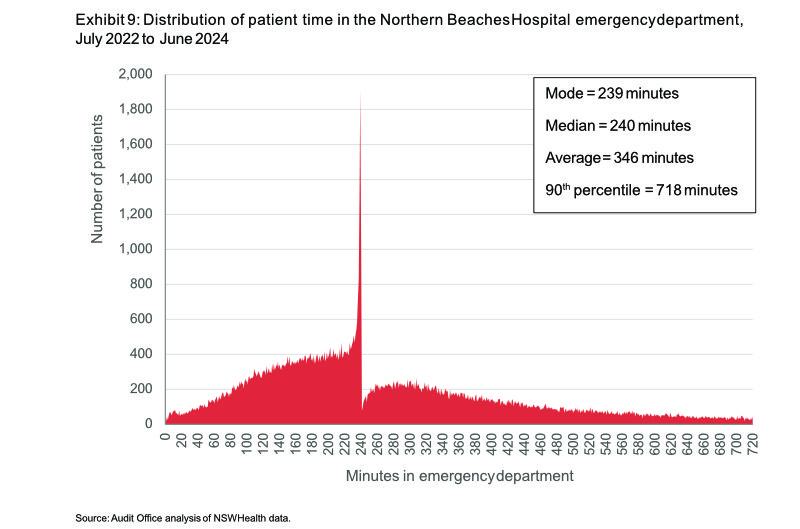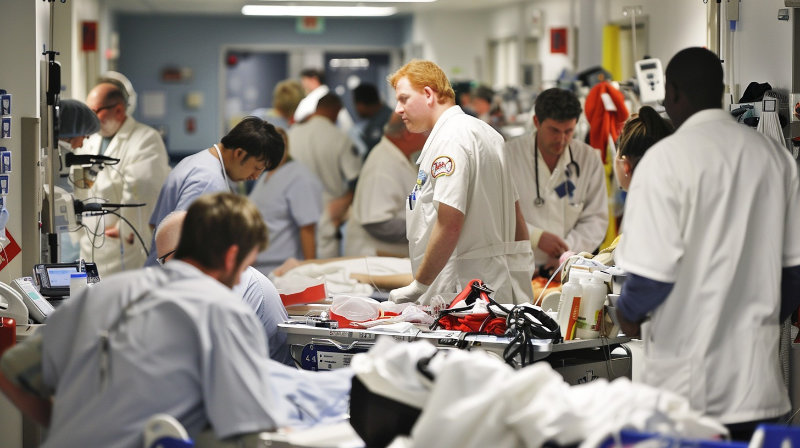The Cayman Islands owner of Northern Beaches Hospital, Healthscope, has blown up financially and hospital ownership is set for a shakeup. Michael West dissects the NSW Auditor-General’s report on hospital performance.
The NSW Government had a bit of a brain explosion ten years ago when privatising the Northern Beaches Hospital (NBH) in Frenchs Forest. The usual spiel of efficiencies, cost control and how “everything is better in private hands.” And so it ended up controlled by a company in the tax haven of the Cayman Islands.
That may have been good for owner-operator (and tax-dodger) Healthscope, which is owned by private equity giant Brookfield, but perhaps not so good for patients and their insurers. In 2024, it emerged that NBH charged twice as much per bed per day as nearby (and public) Royal North Shore Hospital.
Heat is on to put Sydney’s privatised Cayman Islands hospital back in public hands
Eventually, these and other revelations led to the NSW Auditor-General investigating. The report came out last month, and we’ve read all 57 pages of it. But as the saying goes, a picture speaks a thousand words, or rather, a graph does.

The chart maps time spent in the emergency department (ED). You don’t even get that kind of volume on the Shanghai stock market! Kind of funny how at around the 4-hour mark, time in ED falls off a cliff.
Either one of two scenarios plays out here. Did 1000 hypochondriacs suddenly march out the door because the ED was too busy and they couldn’t get into triage? Or do the hospital operators massage the data to enhance their profits?
The AG report puts in more official, but no less damning language:
“The distribution analysis in Exhibit 9 shows a significant spike in the total time in emergency department just before the four-hour mark. This pattern is not consistent with results from similar hospitals in NSW .. This audit identified this anomaly and escalated it to Healthscope and the Northern Sydney Local Health District.
“The District is now investigating this pattern further.”
Don’t hold your breath for this intrepid investigation. The more likely situation is that public-private Partnerships (PPPS) like these have all manner of performance benchmarks, which affect the operator’s profits, and that 4-hour mark was likely one of those benchmarks.
Which brings us to the guts of our thesis: there is a massive conflict of interest between chasing profits and churning out patient care,
providing essential services should not be privatised.
Caymans Privatisation: Northern Beaches Hospital limps into financial triage
Auditor-General legal notices
The report by NSW Auditor-General Bola Oyetunji, Auditor-General for New South Wales, had come about after political pressure from the likes of Sophie Scamps, Jacqui Scruby and a host of others who’d been fielding complaints about NBH cost-cutting. It points out nine ‘legal notices’ which we assume means legal threats by the operator to the government, while the hospital operators claim:
there are too many sick people in this bloody hospital!
Okay, we are paraphrasing here, but they do say, “Healthscope has argued in the nine legal notices and in the request to hand back the public portion of the hospital that this has called into question the viability of the arrangement.”
They even picked up some healthy bonuses by complaining about it!
The report shows that the operator added some $143m in extra value last year—“$73 million in cash value to Healthscope and a further $70 million in reductions of liability.” In addition to the financial issues noted in the report, there were issues with safe staffing levels and service integration into the health network, and the regulator, the NSLHD, went easy on them.
“NSW Health agreed to Healthscope’s proposal to reduce the penalties attributable to poor performance, in part due to concerns about unintended consequences for patient safety.”
Hospitality performance is complicated – there is no visibility of any serious individual incidents, and we are not doctor, but the report says:
“The relatively limited analysis and monitoring of trends for minor harm or near-miss incidents present a risk that emerging trends are not identified and addressed. Additionally, Healthscope is unable to determine the extent to which factors such as insufficient staffing or equipment result in minor harm or near-miss incidents at the Northern Beaches Hospital.”
In summary, “Does not meet the performance expectations under the Deed.”
Too many sick people
Some of the other key areas of concern mentioned in Exhibit 10 of the report:
- Thrombolysis, not progressed (that’s medical jargon for strokes).
- Paediatric acute mental health beds declined.
- Interventional cardiology not provided in the public section, only private (that’s stents and stuff).
But the report nails what we have been hearing and writing about, “Exhibit 10 highlights tensions between commercial principles and public health service delivery.”
It appears that too many sick people complain every year!
To the extent that activity (sick people) exceeds the maximum payment amount, Healthscope essentially provides public hospital services for free. Healthscope has argued in the nine legal notices and in the request to hand back the public portion of the hospital that this has called into question the viability of the arrangement, in other words:
either give us less sick people or pay us more money.
The Northern Beaches Hospital has also experienced challenges in managing hospital-acquired pressure injuries, hospital-acquired infections and birth trauma during the review period for this audit.
A couple of other points of note:
- Exhibit 4: Revising the Northern Beaches Hospital falls action plan in response to an increasing prevalence of falls. In 2022, the Northern Beaches Hospital recorded poor performance on falls during care at the hospital, one of the 16 nationally agreed hospital-acquired complications.
- Under the terms of the project deed, Healthscope is not required to implement Safe Staffing Levels.
What’s next?
We have fielded many complaints about the hospital over the years, having exposed its financial arrangements; that it had been sold to a private equity mob and remanded to the Caribbean to be controlled by infamous tax dodgers, Brookfield.
Hospitals deal with life and death, so cost-cutting is critical to performance. The PPP deal, although very opaque, meant that Manly and Mona Vale Hospitals were shut to funnel traffic into the privatised new facility at Frenchs Forest.
Further, the state forked out $1.2B to enhance the road infrastructure and build the hospital, then gave it to Healthscope on a $1 a year lease for 30 years. But still, the operator gets paid a couple of hundred million a year to run the public portion, besides other revenue sources.
And although the report did not get to the bottom of it, suggesting that on a financial efficiency basis it was comparable with other hospitals, on the publicly available information. However, we had a look at comparable figures and it appeared – from public data – that Royal North Shore was three times cheaper per public bed than NBH. We don’t know this for sure, as these deals, and this is a problem with them, are not transparent.
Which brings us to the speculation that as they don’t have to disclose terms, the NSW Government may have had them over a barrel on serious health incidents under the Deed and has said, “well, you guys can walk away without suing us and forcing this to be disclosed in a courtroom if you try to get your lawyers to pressure us for a massive payment to take the thing public again.”
Again, we don’t know.
But just one more moral of this story. This is a good report, and that’s because it was done by the Auditor-General. If you look at the track record of governments, particularly federal governments, over recent years, privatisation has meant the government will pay EY, PwC, or any one of these consultants hundreds of thousands, if not millions, to do this paperwork to achieve whatever result they want. The old “give us your watch, and we’ll tell you the time routine.”
This report is a breath of fresh air.
Michael West established Michael West Media in 2016 to focus on journalism of high public interest, particularly the rising power of corporations over democracy. West was formerly a journalist and editor with Fairfax newspapers, a columnist for News Corp and even, once, a stockbroker.

